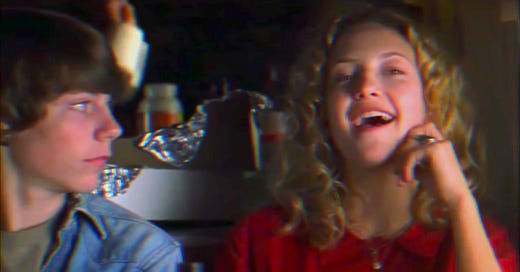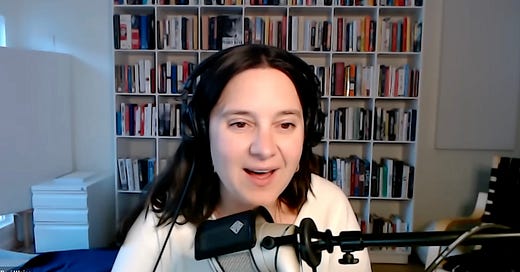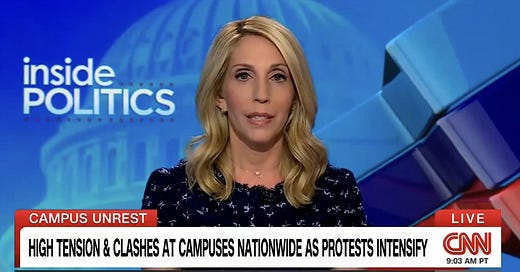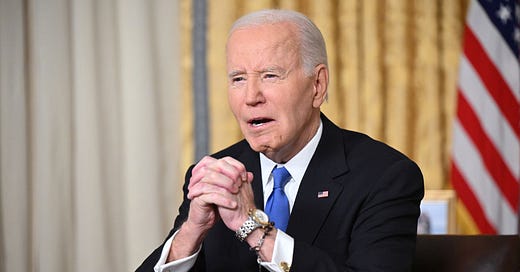
What Will It Take for Me to Leave?
I love journalism. I can't stop thinking about quitting it.
This summer will mark four years since I started doing journalism full time, and I’m wondering what it will take for me to leave.
I originally wanted to be a music journalist. It is a cliché, just as it is to use the above screenshot of Almost Famous, but I was so sure it was my calling.
As a child I was obsessed with Nancy Drew, until I became obsessed with Fall Out Boy and Say Anything. I asked for subscriptions to Alternative Press for Christmas through middle and high school. I became a self-taught student of Rob Dobi’s work — he did the tour art for Fall Out Boy in 2006 and 2008, and had lots of other Warped Tour-related clients. I treated Everybody Hurts, a 2007 book on emo culture by AP editor Leslie Simon and writer Trevor Kelley that Dobi also illustrated, as my bible.
I was also obsessed with journalism. I interviewed Kelley for some dinky 8th grade project on how journalism happens (lol) and later messaged him over Facebook (or was it MySpace?) to ask for advice after getting “harassed” in 11th grade for writing a very bad, no good take on cheap clothing in the high school newspaper, the ethos of which I didn’t believe in.
Somewhere in that time I did watch Almost Famous, I suspect because of a Tumblr post. I was an “All-State Journalist” for Texas’ state-wide journalism competitions two years in a row, and became editor in chief of the high school paper as a senior. I left my UT Austin Journalism School campus tour thinking I would complete my last semester in Los Angeles (you could do that as part of a program the school offered) where I would then launch my music journalism career. It was a dream, until it wasn’t.
I did music journalism for my first two years in school, interviewing up-and-coming Austin bands and learning how to assert my self in scenes swarming with men. My priorities began changing, but it wasn’t until my last year that I had stopped music journalism altogether and embraced reporting and writing about social issues. I was tired of writing floral, kind, wordy pieces about musicians who were 20 percent my friends and 80 percent too old for me to be hanging out with, and I wanted more than anything to just be a reporter. That semester in L.A. happened, but it was less of an educational opportunity and more of an intro to the world I was giving up.
So I tried to do the reporting thing for a while. I reported as an intern for an Austin-based digital publication for a few months during my senior year in college. Months later they had sizable layoffs. By then I had moved to a women’s publication in New York, blogging for their news and identity team. My contract was ended after four months, weeks before the 2016 election. They laid off half my team the week after that, and later pivoted to lifestyle coverage. I went back to Austin and worked for that first publication for a few years and did a lot of reporting there. I got hired by Splinter and reported a few things there. And then we got laid off. (These were just the layoffs that were personal to me, lost in a sea of media layoffs spanning near decades.) Other disappointing, unfortunate things have happened since then that I don’t want to get specific about, because they involve some of the opportunities I have to get paid right now.
All of this has happened to me in just four years, and I am so far from alone. Journalists everywhere — digital reporters, newspaper veterans, people who have been laid off in the past three months or who were pushed out well before the pandemic, national stars and local journalists who provided such a specific and irreplaceable value to their communities — are being tossed overboard. These realities are worse for black journalists and other journalists of color, during an era of journalism in which newsroom leaders want diverse faces but not the voices that come with them.
I want better for these journalists, too. We all deserve better, and this idea that you must have a passion for journalism in order to survive in it because the industry will treat you like shit must end.
I love what I do. I love talking to people about their experiences and what they know and the kind of worlds they want to live in. I let my passion drive me through so many years. Through unpaid student newsrooms and unpaid and underpaid internships and fellowships. Through underwhelming meetings with editors and industry veterans, and tiptoeing around whiteness and maleness and rich people who want to get richer. Through feeling unseen and misunderstood and under-cultivated, and sometimes worthless. Through tense and infuriating conversations with management and HR that have left me in tears or seeing red.
Passion can’t feed you. It can’t pay for your therapy, or whatever else you do to make yourself feel something more than burned out. It certainly doesn’t afford you the resources you need to do your job and grow in your career, like digital databases, or networking opportunities, or reporting time. Passion will never provide you the stability you wish you had in order to thrive.
I don’t know what the solutions look like, aside from taking the power back from executives and tech platforms (irony noted) and other people who believe the endgame of journalism is to make money, not to provide a service to your community. Perhaps they live in nonprofit newsrooms and media cooperatives, and inter-newsroom collaborations. We need a systemic upending of journalism that gives power back to the people who create the news and the people whose lives depend on knowing it, and that gives writers and reporters room to explore and grow and be proactive in their craft instead of reactive to the industry’s volatility. This world must be possible, because how else can journalism survive? I don’t know, nor do I know if I’ll be around to find out.
Wishful thinkers say, be the change you want to see in the world. I wish I could, and yet it is so exhausting clinging to these threads of hope, fighting to stay in an industry that has never once tried to dissuade me from leaving. I do not fantasize about what it will take for me to let it go, but I do wonder. How many more hours will I lose before I quit? Should I find a part time job, or freelance with the time I have left in my week? How many more times will I be laid off before I quit?
How many more months of paying for my own health care and employer taxes before I quit? Could I make it through one medical emergency, or two?
Could I freelance full time if I had to? Could I leave before it got that bad?
Could I stay if I wanted to move again? Could I stay if I wanted to have kids? Could I stay if my parents or sister needed help?
Could I leave feeling like I did everything I could to stay? Can I even wait for that feeling?
What is stopping me from leaving now? What other jobs in the world might make me happier? How else might I feel a sense of stability again?
I have appreciation for the people who encourage journalists not to “quit.” Who tell them they play a necessary role in the journalism ecosystem and whose passion is vital and necessary. I get it. Truthfully, it’s an encouraging but sometimes unhelpful message. There is nothing wrong or undignified or misplaced about leaving journalism, and no one is any more “tough” for sticking it out despite their poor circumstances. I am sure everyone who has left the industry before me has pondered their options and determined for themselves that enough was enough. It was their dream, until it wasn’t.
I actually interviewed Leslie Simon when I first started doing this work full time, for a freelance piece on “emo nights,” and we talked about her and Kelley’s book. It was approaching a decade since its publishing, and I remember her telling me that maybe in a decade people would be asking me about what I wrote back then. It was a kind thing to say. Simon now works for CBS’s streaming platform (according to LinkedIn), and I remember seeing that Kelley had moved to Disney at some point between 2007 and now. I stopped subscribing to Alternative Press when I went to college, and I watched the magazine shrink on the racks over the years.
It’s not like I wasn’t told that this shit was going to be hard in journalism school (which, to be clear, was another privilege, with its network and its instruction from specific teachers). To a fault, my classmates and I were regularly reminded of how loveless this work would be. Of how much we were going to have to want it, just to make it worth it. But I don’t think the people who’ve left journalism ever wanted it less than the people who stayed.
And then I think about us, the people who are trying to do something with this newsletter. Several of my Discourse Blog colleagues, myself included, have yet to find contract or full-time work since we were laid off more than seven months ago (not that full-time work, even with a union, is exactly the perfect model of stability we’d hope it to be). As news tycoons use the pandemic as an excuse to lay off tens of workers and implement new profitability plans, the chances that we, or any other laid off journalists, may find work continue to shrink. Many more people will be forced out of this industry before something changes. I just wonder who will be left to do something about it.
Screenshot via Liviu Balint/YouTube; Remix by Samantha Grasso















Can’t Bernie throw y’all a bone? It’s worth the investment for continuing his legacy.
Hope there are enough paid subscribers here to help out. I’ll chip in.
Y'all should start a Patreon.